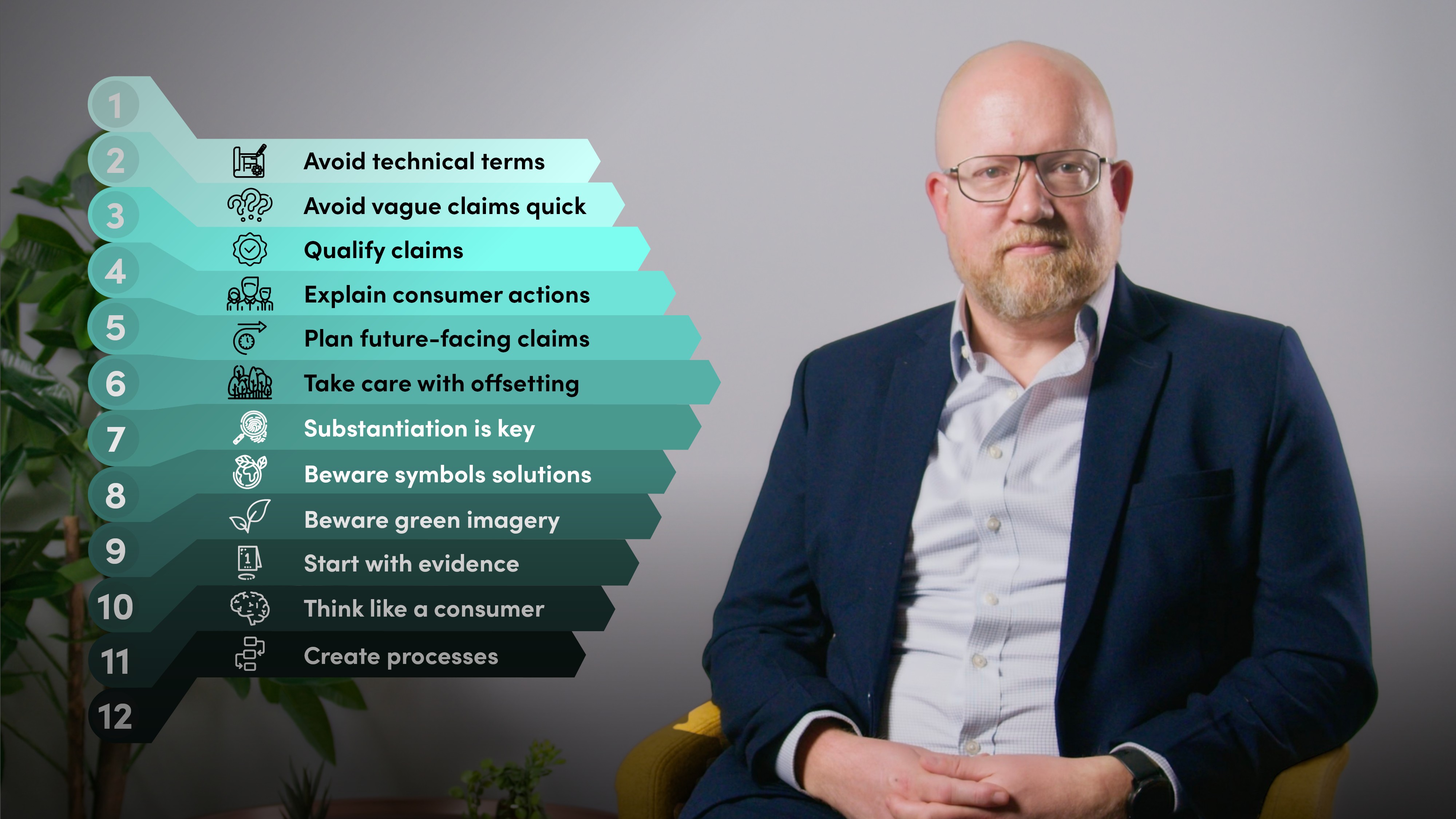
Practical Steps to Avoid Greenwashing

Stuart Helmer
Avoiding greenwashing is tricky but crucial. Join Stuart Helmer from CMS as he breaks down common pitfalls and practical tips to help you make legally compliant environmental claims.
Avoiding greenwashing is tricky but crucial. Join Stuart Helmer from CMS as he breaks down common pitfalls and practical tips to help you make legally compliant environmental claims.
Subscribe to watch
Access this and all of the content on our platform by signing up for a 7-day free trial.

Practical Steps to Avoid Greenwashing
13 mins 5 secs
Key learning objectives:
Understand common pitfalls in green advertising
Outline practical steps to avoid greenwashing
Outline sector-specific greenwashing regulation
Overview:
Subscribe to watch
Access this and all of the content on our platform by signing up for a 7-day free trial.
- Unclear technical terms: Terms like ‘biodegradable’ and ‘compostable’ have distinct meanings and should be properly explained
- Vague claims: Words like ‘sustainable’ or ‘eco-friendly’ may imply an overall positive impact, which is a high bar
- Unqualified claims: A claim should clearly state its scope - if only part of a product is recyclable or sustainably sourced, this must be made clear
- Consumer actions: If a product’s environmental benefits depend on the consumer taking specific actions (e.g. using a special recycling facility), this should be stated
- Future-facing claims: Claims like “carbon neutral by 2030” must be backed by a concrete plan with board-level approval and demonstrated progress
- Offsetting concerns: Many carbon offsetting schemes do not deliver the claimed benefits
- Lack of substantiation: Environmental claims must be backed by solid evidence, even if obtaining this evidence is costly or time-consuming
- Misleading symbols: Businesses should be cautious about using self-created environmental symbols, as they may be perceived as misleading
- Green imagery: Ads must be assessed in context - using nature-themed images alongside general claims about responsibility can give a misleading impression
- Base claims on evidence: Instead of deciding what to claim first, businesses should start with the evidence they have and ensure their claims align with it
- Consider consumer perception: Advertisers should step back and assess how an average consumer might interpret a claim, ensuring it does not rely on technical knowledge
- Implement internal processes: Businesses should establish policies and training programmes to ensure environmental claims are accurate and not misleading. This is particularly important for industries under regulatory scrutiny, such as fashion retail
- Fines, suspensions, or other enforcement actions by the FCA
- Civil claims or consumer complaints from individuals who relied on misleading sustainability claims
- Complaints to the Financial Ombudsman Service, potentially leading to compensation payments
- Legal challenges from competitors or NGOs seeking to ensure a fair and transparent market
Subscribe to watch
Access this and all of the content on our platform by signing up for a 7-day free trial.

Stuart Helmer
There are no available Videos from "Stuart Helmer"





























